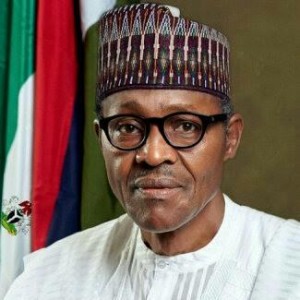 Promises, it is said, open the eyes of expectations.With the president-elect’s promises on the security of the populace, employment for the youth and provision of infrastructure, the people are currently siting with their legs crossed waiting for the show to begin. But in reality, are these what Nigerians will be contented to have after the next four years? What will become of the other demands Nigerians have put forward? Which of these expectations are actually meant to be fulfilled? Even the Chinese will tell you “you cannot fill your belly by painting pictures of bread”. Perhaps all these expectations are just ways Nigerians have unconsciously found temporary solace from previous disappointments.
Promises, it is said, open the eyes of expectations.With the president-elect’s promises on the security of the populace, employment for the youth and provision of infrastructure, the people are currently siting with their legs crossed waiting for the show to begin. But in reality, are these what Nigerians will be contented to have after the next four years? What will become of the other demands Nigerians have put forward? Which of these expectations are actually meant to be fulfilled? Even the Chinese will tell you “you cannot fill your belly by painting pictures of bread”. Perhaps all these expectations are just ways Nigerians have unconsciously found temporary solace from previous disappointments.
The enormous challenges Buhari’s regime has to face have led him to implore Nigerians to temper their expectations with justice towards the leadership. All that has been destroyed for the past 16 years cannot be built back in months or even years. If it is total change the people want, I fear they would have to, with great patience and high hopes wait until the bread is finely toast. One of the greatest expectations the people have of the president is for him to maintain his hatred for corruption which is in fact the biggest worm that has bored a relatively big hole into the foundations of the country.
Expectations have been the inherent driving force of Nigerians especially in the making and implementing of political decisions. The slogan ‘change’ used by the APC was just the right word Nigerians needed to believe in at such critical moment as we have in the country at this moment. Some have even gone to the extent of believing in the establishment of a utopian state as soon as the man for the job starts his business; a country that is corruption free, has a stable electricity supply, can boast of the best roads, can provide more amenities for local dwellers, more jobs for those in the labour market and ultimately, the extinction of boko-haram. In fact, the 29th day of May was like the day change itself would come out as a being with Nigerians rejoicing, feeling that finally, all would be well.
Just about 24 hours in office, the real battle began, which will test how strong a rope the present regime is holding for support. First, for instance, are the criticisms coming from various quarters and discord slowly emerging among the people. Arguments and of course criticisms on his decision to relocate the military command and control centre to Maiduguri,moves for his declaration of assets to be made public, and on the list goes and will continue to go. It is part of the leadership challenges he has to face. At some point, some people will even go against each other justifying why a particular demand is more important than those of others not because it actually is more important but because everyone already feels they have the right to get their demands taken care of.This is when expectations that are meant to be consolidated take different courses.
The success of a decision made lies in the unity of its demand in the first place. Expectations, Brandon Sanderson has said, are like fine potteries; the harder you hold them the more likely they were to crack. Too many expectations, even as students, lead to much pressure especially when you are given no other option than to meet up with them. One with lots of pressure will definitely not be able to think well and make the best decisions. The result of this is the making of decisions to suffice the present just so that pressure goes away. Assuming president Buhari ends up in a situation like this, plans that do not go long into the future might end up being made as solutions. Although the people may be happy and contented at that moment, it will turn sour when the situation turns around to where it started. By that time, a big failure will already be registered.
It is not when the government implements policies that it has done well, it also depends on what kind of policies, for whom it was made and its implications on the lives of the people. This is the feedback. Like David Easton said, it is the kind of feedback the people get after they have placed their demands that determines if the government will get their support or apathy. If apathy is the result, the system is said to have failed.
In such a multi-lingual state as ours, we are not expected to expect others to think like we do because perspectives and wants will definitely vary. These varying needs of the people, if not attended to one at a time, taking into consideration its general implications, can leave our saviour lost in the middle of nowhere, not knowing where and how to start. Goals will then be in shambles all because there is no unity in demands.
Finally, the awareness of the expectations and hope the country has on him will serve as a blueprint for decision makings and a subtle reminder the people would never condole Mr President giving up on them. On the other hand, what Mr President needs most is cooperation, especially from the people at the grass-root and not discord as Nigerians have been known to possess. At the end, the failure of the people at maintaining unity and giving support, will lead to the failure of the government in power because one cannot expect to get fat broth from a lean meat.




